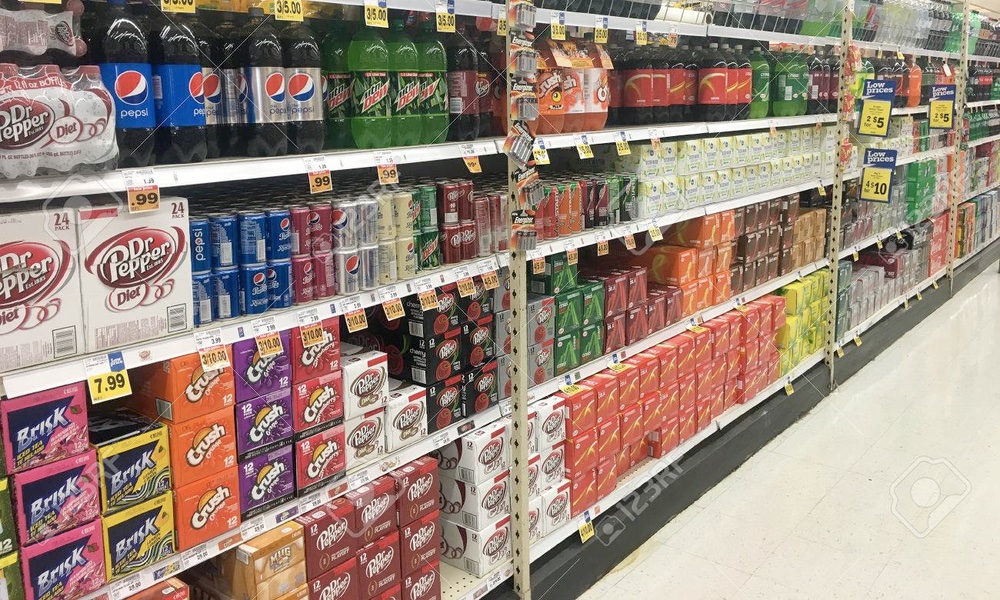The problem with sodas and other sugary drinks is that they are rapidly consumed and digested, and this is what makes them such a risk to health.
Not only do sugary-sweetened beverages deliver lots of empty calories, they cause blood sugar levels to spike, contributing to overweight and insulin resistance over time. Both these conditions are behind two leading causes of death worldwide: type 2 diabetes and cardiovascular disease.
Defining sugar-sweetened beverages as having 50 or more calories of added sugar in an eight-ounce serving, Tufts University researchers estimated that adults around the world drank almost three eight-ounce servings a week of sugar-sweetened drinks in 2020. According to their projections, this overconsumption contributed to more than two million new cases of type 2 diabetes and one million new cases of cardiovascular disease worldwide that year.
To reduce consumption of sugar-sweetened beverages, the researchers suggest public health officials take a multipronged approach that includes public health campaigns, advertising regulations and so-called soda taxes. “We need urgent, evidence-based interventions to curb sugar-sweetened beverage consumption globally,” Laura Lara-Castor, first author on the paper and a postdoctoral scholar at the University of Washington, said in a statement.In Latin America, the Caribbean and Africa, sugar-sweetened beverages contribute to the highest rate of new cases of type 2 diabetes and cardiovascular disease.
These measures may be needed the most in developing countries in Latin America, the Caribbean and Africa, where sugar-sweetened beverages contributed to the highest rate of new cases of type 2 diabetes and cardiovascular disease.
“Much more needs to be done, especially in Latin America and Africa, where consumption is high and the health consequences severe,” Dariush Mozaffarian, senior author on the paper, said in a statement. “As a species, we need to address sugar-sweetened beverage consumption.”
Sugar-sweetened beverages contributed to almost 24 percent of new type 2 diabetes cases and more than 11 percent of new cases of cardiovascular disease in Latin America and the Caribbean. Sugary drinks were responsible for more than 48 percent of new type 2 diabetes cases in Colombia and almost 33 percent of new cases in Mexico.Overconsumption of sugar-sweetened beverages contributed to more than two million new cases of type 2 diabetes and one million new cases of cardiovascular disease worldwide.
In sub-Saharan Africa, sugar-sweetened beverages contributed to 21 percent of new type 2 diabetes cases. In South Africa, more than 27 percent of new cases of type 2 diabetes and more than 14 percent of new cardiovascular disease cases were linked to sugary beverages.
Sugar-sweetened beverages are aggressively marketed and sold in these countries, said Mozaffarian, director of the Food is Medicine Institute at the Friedman School and the Jean Mayer Professor of Nutrition there. “These communities are consuming harmful products, and are often less well-equipped to deal with the long-term health consequences.”
The drinks covered in the study included soda (but not diet soda), sports drinks, energy drinks, fruit drinks and fruit punch, lemonade and aguas frescas (beverages made with one or more fruits blended with sugar and water).
You can limit your consumption of these beverages. Here are a few ideas:
- Reduce the amount of sugary beverages you drink gradually. Try diluting a sweetened beverage with the unsweetened version, water or low-sodium seltzer.
- Substitute smaller 7.5-ounce mini cans for 12-ounce cans.
- Read the Nutrition Facts labels on any bottled smoothies, coffees or other sweet drinks you buy. Check how many servings are in the bottle, and look for ingredients like glucose, sucrose, maltose, dextrose, agave, honey, concentrated fruit juice and syrup.
- Keep a refillable bottle of water on your desk or nearby so water becomes the most convenient choice. Try adding fruit or cucumber slices to the water for flavor.
The study is published in Nature Medicine.





